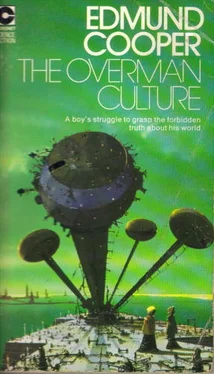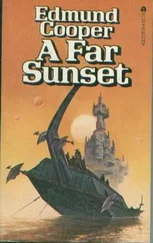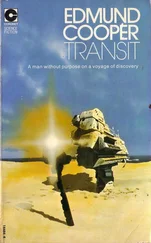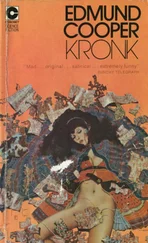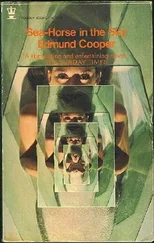Edmund Cooper - The Overman Culture
Здесь есть возможность читать онлайн «Edmund Cooper - The Overman Culture» весь текст электронной книги совершенно бесплатно (целиком полную версию без сокращений). В некоторых случаях можно слушать аудио, скачать через торрент в формате fb2 и присутствует краткое содержание. Город: London, Год выпуска: 1977, ISBN: 1977, Издательство: Coronet Books, Жанр: Фантастика и фэнтези, на английском языке. Описание произведения, (предисловие) а так же отзывы посетителей доступны на портале библиотеки ЛибКат.
- Название:The Overman Culture
- Автор:
- Издательство:Coronet Books
- Жанр:
- Год:1977
- Город:London
- ISBN:978-034017860
- Рейтинг книги:5 / 5. Голосов: 1
-
Избранное:Добавить в избранное
- Отзывы:
-
Ваша оценка:
- 100
- 1
- 2
- 3
- 4
- 5
The Overman Culture: краткое содержание, описание и аннотация
Предлагаем к чтению аннотацию, описание, краткое содержание или предисловие (зависит от того, что написал сам автор книги «The Overman Culture»). Если вы не нашли необходимую информацию о книге — напишите в комментариях, мы постараемся отыскать её.
The Overman Culture — читать онлайн бесплатно полную книгу (весь текст) целиком
Ниже представлен текст книги, разбитый по страницам. Система сохранения места последней прочитанной страницы, позволяет с удобством читать онлайн бесплатно книгу «The Overman Culture», без необходимости каждый раз заново искать на чём Вы остановились. Поставьте закладку, и сможете в любой момент перейти на страницу, на которой закончили чтение.
Интервал:
Закладка:
Ernest went back up the cellar steps. Michael took a last look round. It was all theatrical. So dreadfully theatrical. Horatio clutching his bomb in a roomful of bombs and ammunition, and the three drybones standing against the wall in that peculiarly formal posture with hands on belt and legs stiffly apart.
Michael wanted to say something; but there did not seem anything appropriate that he could say. He followed Ernest up the cellar steps, out of the drab little house into a gray urban Sunday.
They began to make their way quickly to where the bicycles had been left, under a covered cycle stand at the far end of the street.
They had just reached the bicycles when the explosions came. They looked back in horror and saw fragments of the house erupting into the sky. A great cloud of dust and debris seemed to hang suspended. Then the fragments of the house came crashing down.
Michael was the first to speak. “We shall never know,” he said dully. “We shall never know whether Horatio intended it or whether the drybones….” He didn’t finish.
“What do we do now?” whispered Ernest. “I suppose Horatio must be—”
“Of course he’s dead!” said Michael harshly. “There is nothing to do, except get away from here as fast as we can.”
27
Jane Austen was a very gentle person. She always had been. Gentle and timid, easily depressed, needing only simple things to make her contented—simple, unobtainable things like stability and security; but then Michael began to discover terrible secrets, and then the library yielded further terrible secrets, and now Horatio was dead. Life, which had only seemed originally like an unreal dream, was now transformed into a real nightmare. Jane Austen was living in a small claustrophobic world enclosed in a greater, unknown world—reports of which only served to increase her terror and sense of impending doom. She concealed as much of her fears as possible from Ernest and Michael, realizing that they must not be diverted by feminine weakness from the course they had chosen. But Emily became her confidante. Emily was a person she could trust with secrets, a person to whom she could reveal the depth of her unhappiness.
Ever since that first visit to the library, she and Emily had spent a great deal of time in each other’s company. There was little alternative, since Michael and Ernest and Horatio had been engaged in matters about which it was best to know as little as possible.
There were other fragiles that Jane knew and liked, such as Dorothy Wordsworth, Mary Kingsley and Elizabeth Barrett, but there was none whom she felt she could wholly trust—none but Emily.
On the day after Horatio’s death, when school was over, she and Emily met to walk and talk in St. James’s Park. Michael had decided that no one outside the Family must know what had happened to Horatio. Let the drybones find out for themselves, if they could. But the knowledge and the secrecy, the mysteries and unforeseeable dangers were a heavy burden to bear. They had become, at last, too heavy for Jane Austen.
It was a cool, gray afternoon; and hardly anyone was in the park. Emily and Jane sat on a bench and watched a pair of ducks create rippling fantasies of reflection on the mirrorlike sheet of water. Emily had with her the copy of Wuthering Heights. Both Michael and Ernest had helped her to grasp the principles of reading; and now she was nearly halfway through the book. Sometimes she felt a strange sense of identity with that other Emily Bronte. Sometimes, she imagined she could feel the icy wind cut her face, and sense the bleak beauty of the Yorkshire moors.
Emily was acutely aware of Jane’s tension and unhappiness; and had been trying to distract her with an account of the stormy adventures of Heathcliff and Cathy.
Jane was silent for a time. Then she said: “Jane Austen wrote novels, too, you know. Ernest has The Concise Oxford Dictionary of English Literature…. We are in there, Emily—you and me and Elizabeth Barrett and Dorothy Wordsworth and… and we are all trapped in little black marks on paper!” She began to sob.
Emily put her arms round Jane, trying to comfort her. “Darling Jane, don’t be so unhappy. Personally, I am glad that there was another fragile called Emily Bronte who lived in a strange and wonderful world and could write such a beautiful book. Somehow, it gives me a sense of belonging. I feel at times almost as if I know her. I feel oddly as if we have something to share.”
Jane stopped crying. “We have something to share, too,” she said dully. “Deceit, fear, death, uncertainty. We are like little animals, Emily. Little defenseless animals in a big cage. Someone is keeping us here for a purpose, and when the purpose is fulfilled, the animals will be destroyed and the cage will be discarded.”
“Michael has found a way out,” said Emily.
“A way out of one nightmare and into another. Perhaps he would have done better to have left us in ignorance. Now we know that London is a—a paper city. And we also know that outside it is a world of monsters…. I—I wish we were children again, Emily. I wish that we could turn back the clock and accept what we have, and pretend that everything is all right. And everything can be all right if you pretend that it is. It can be.”
Emily shook her head. “Not for us, Jane dear. Not in a world of fragiles and drybones. It never could have been all right. You know that.”
Jane relapsed into silence once more, holding Emily’s hand tightly. Presently she said: “You and Michael have made love together, haven’t you?”
“Yes.”
“Tell me about it. Tell me about making love. I want to know what it is like.”
“It is very hard to describe, but I’ll do my best. The touching and the kissing and the stroking and the holding make my body excited, soft and hard at the same time. My breasts begin to ache and hurt, but it is the kind of ache that I don’t want to stop…. When we last made love, Michael and I wore nothing at all. He lay on top of me, and my legs seemed to open without my having to think about it. And there was a hard part of him that was pressed between them, and then it went inside me. I could feel the hardness; and there was the sweetest, most consuming pain in the world…. I’m sorry. I don’t know what happened really. It’s funny. I don’t know what making love is, or what it means, but I somehow know how to do it…. Believe this, Jane. It is the loveliest thing in the world.”
“Thank you, Emily. Thank you for telling me. I still don’t know what it is like. But I believe that it must be wonderful…. Do you think the drybones make love?”
Emily frowned. “I don’t think the drybones even know about love. Perhaps that is something, at least, in which we are superior.”
“I think I love Ernest.”
Emily squeezed her hand. “I know you do. I have seen the way you look at him.”
“Do you think he knows?”
“He’s not as clever as he thinks he is if he doesn’t…. Do you feel a bit happier now, Jane?”
“I don’t know…. I feel more at peace…. Do you believe that people should have the right to decide what to do with themselves, with their lives?”
“We should all be free to make our own decisions. I suppose that, apart from finding out what our true situation is, that is what Michael and Ernest are working for.”
“I don’t think Horatio was working for anything like that. He just hated drybones…..I must go now, Emily. My— they will be asking questions if I am late. I hate the questions. I hate the—the pressure.”
“I must rush, too. I want to try to get out to meet Michael for a few minutes tonight. See you tomorrow, Jane. Try not to be too unhappy…. When I go to bed, I always try to fall asleep thinking of nice things. It is something I have done since I was a child.”
Читать дальшеИнтервал:
Закладка:
Похожие книги на «The Overman Culture»
Представляем Вашему вниманию похожие книги на «The Overman Culture» списком для выбора. Мы отобрали схожую по названию и смыслу литературу в надежде предоставить читателям больше вариантов отыскать новые, интересные, ещё непрочитанные произведения.
Обсуждение, отзывы о книге «The Overman Culture» и просто собственные мнения читателей. Оставьте ваши комментарии, напишите, что Вы думаете о произведении, его смысле или главных героях. Укажите что конкретно понравилось, а что нет, и почему Вы так считаете.
